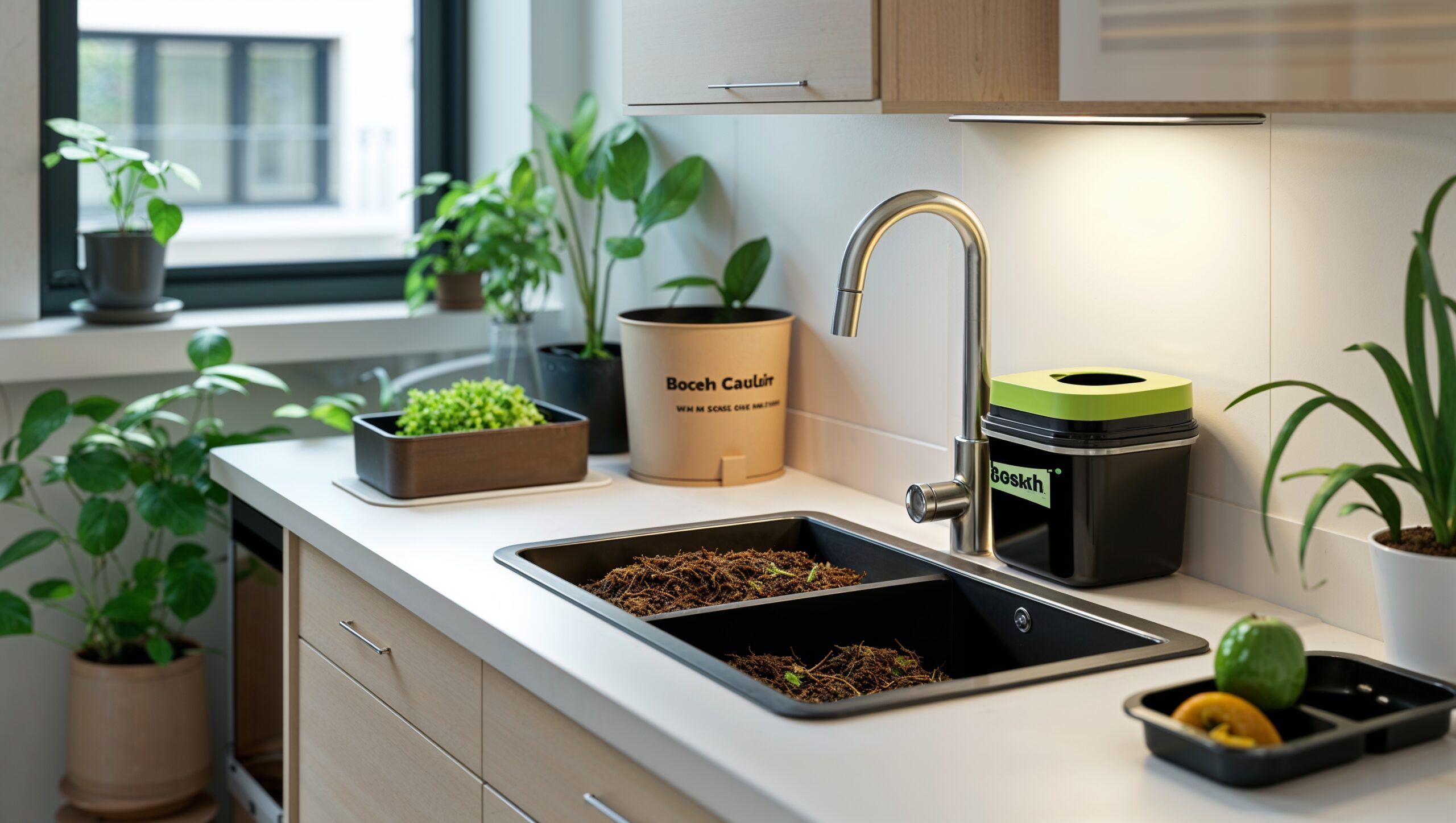Think composting is only for people with backyards? Think again. Even if you live in a small apartment with no outdoor space, you can still compost your food scraps — and keep hundreds of pounds of waste out of landfills every year.
In this article, you’ll learn how to compost indoors, what tools you need, how to avoid smells or pests, and the best ways to use or dispose of your finished compost.
Why Compost in an Apartment?
Food waste is a major contributor to landfill methane emissions — a powerful greenhouse gas. When you compost, you:
- Reduce your trash output
- Cut down on odor from your garbage
- Help create rich soil for gardens, parks, or plant pots
- Make a powerful impact with a simple habit
Best of all, apartment composting is easier than most people think.
1. Choose the Right Composting Method
Here are three apartment-friendly composting systems to choose from:
✅ A. Bokashi Composting (Fermentation)
- Uses a bran inoculated with beneficial microbes
- Works for all food waste, including meat and dairy
- Anaerobic (no oxygen required)
- Compact and odorless
🛠️ Needs: Bokashi bin + bran (can be purchased online)
✅ B. Vermicomposting (Worm Bin)
- Uses red wiggler worms to eat food scraps
- Great for veggie and fruit waste
- Produces nutrient-rich “worm castings” and liquid compost
🛠️ Needs: Worm bin (store-bought or DIY), bedding (shredded paper), and worms
✅ C. Electric Composters
- Small, countertop machines that dehydrate and grind food waste
- Fast (a few hours) and odor-free
- Converts waste into compost-like material
🛠️ Needs: Electric unit (e.g., Lomi, Vitamix FoodCycler) — higher initial cost
2. Know What You Can (and Can’t) Compost Indoors
✅ Good for apartment composting:
- Fruit and vegetable scraps
- Coffee grounds and tea bags (check for plastic)
- Eggshells
- Rice, bread, and pasta (small amounts)
- Shredded paper and cardboard (for bedding or balance)
🛑 Avoid (unless using Bokashi or electric units):
- Meat and dairy
- Oily or greasy foods
- Large citrus rinds
- Pet waste
- Plastic-lined or glossy paper
Keeping it clean helps prevent odor and pests.
3. Set Up Your Composting Space
You don’t need much room — a corner under your sink, a closet, or even on your balcony (if covered) works great.
✅ Tips:
- Place bin on a tray or mat
- Keep ventilation if using worms
- Store Bokashi bins in a cool, dark place
- Use a countertop caddy to collect scraps during the day
Make your setup part of your kitchen routine.
4. Prevent Smells and Pests
A common fear — but easily avoided!
🧼 Tips to stay fresh:
- Chop scraps into small pieces
- Avoid overloading your bin
- Cover fresh food waste with dry material (paper, leaves, coconut coir)
- Rinse your bin regularly
- Maintain balance: carbon (browns) to nitrogen (greens)
Worm bins smell like earth when healthy, and Bokashi has a sweet, pickled smell — not rotting garbage.
5. What to Do With Finished Compost
You may not have a garden, but compost still has many uses:
✅ Ideas:
- Feed to indoor or balcony plants
- Offer to neighbors or local community gardens
- Donate to compost drop-off locations (farmers’ markets, co-ops)
- Use in potted herbs or houseplants
- Share through local apps like OLIO, Nextdoor, or Buy Nothing
If you use a Bokashi system, the pre-compost should be buried or added to soil — you may need a community garden or outdoor bin to finish the process.
6. Join Local Composting Programs
Check if your city offers:
- Food scrap drop-off sites
- Compost collection services
- Shared neighborhood bins
- Partnerships with zero-waste groups
Search “[Your city] compost program” to find options.
7. Track Your Impact
You may be surprised by how much waste you keep out of the trash.
✅ Try:
- Weighing your food scraps weekly
- Tracking bags of trash reduced
- Sharing progress with roommates or friends
Celebrate the fact that you’re creating something valuable from something “gross.”
Small Space, Big Impact
You don’t need a yard or a fancy setup to make a difference. Composting in an apartment is simple, smart, and surprisingly satisfying. Once you get started, it’ll feel like second nature — and your trash can will thank you.
Because even in a small space, you have the power to reduce waste and nourish the planet.
